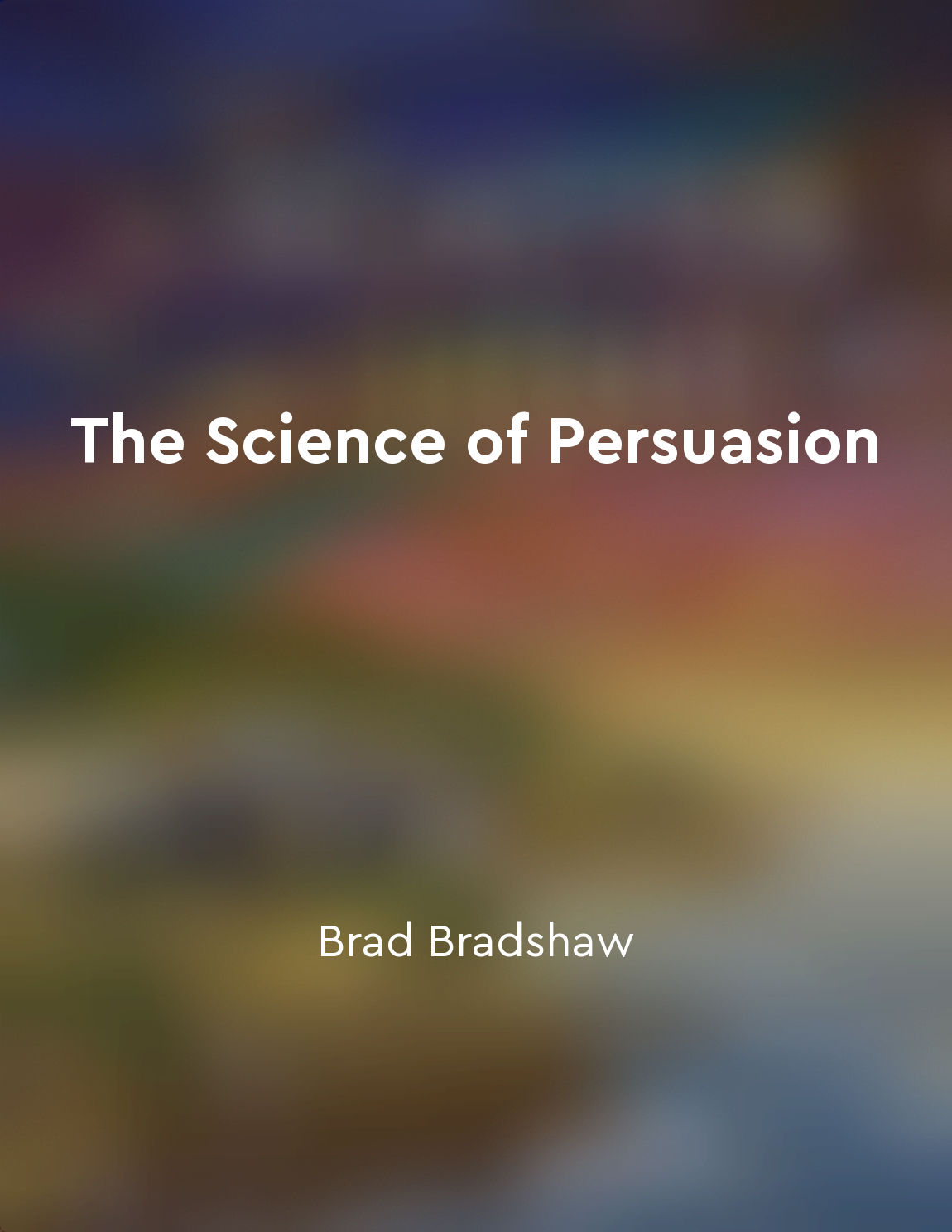Audio available in app
Understanding the audience is crucial from "summary" of The Science of Persuasion by Brad Bradshaw
To be successful in persuading others, it is essential to have a deep understanding of the audience you are trying to influence. This understanding goes beyond just knowing their demographics or preferences; it involves knowing their beliefs, values, and motivations. Without this crucial insight, your attempts to persuade may fall flat. When you take the time to truly understand your audience, you are better equipped to tailor your message in a way that resonates with them. You can frame your arguments in a way that aligns with their existing beliefs, making it more likely that they will be receptive to your ideas. This level of personalization can make a significant difference in how your message is received. Furthermore, understanding your audience allows you to anticipate their objections and address them proactively. By knowing what might cause resistance or skepticism, you can preemptively counter those concerns and build a stronger case for your position. This proactive approach demonstrates to your audience that you have taken the time to consider their perspective, which can enhance your credibility and make your arguments more persuasive. In addition, understanding your audience enables you to tailor your messaging to their preferred communication style. Some people may respond better to logical, fact-based arguments, while others may be more swayed by emotional appeals. By adapting your approach to suit the preferences of your audience, you can increase the effectiveness of your persuasion efforts.- The key to successful persuasion lies in the ability to connect with your audience on a deeper level. By understanding their beliefs, values, and motivations, you can craft messages that resonate with them and address their concerns. This level of personalization and empathy is crucial in building trust and credibility, which are essential components of effective persuasion.


